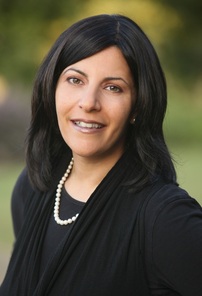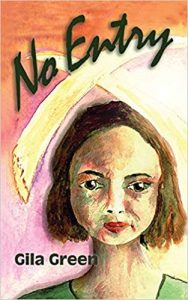Five Tips To Help You Write A Novel About Anything
 By Gila Green
By Gila Green
Novels are peppered with males and females, young and old, witches, aliens, and murderers. Yet many writers still feel limited to topics they know inside and out.
What a great pity.
I published a young adult novel about a teen heroine who takes on an elephant poaching ring in South Africa’s Kruger National Park and you know what? I’m not a wildlife conservationist, I don’t work with animals, I’ve seen a real elephant less than a dozen times, I’m not South African, you get the idea.
My novel received testimonials from elephant experts and conservationists and I’ve had a request from my publisher to write an environmental series. The sequel’s already done and I’m so excited about this project. I’m writing this post to encourage all of you to get out of your comfort zones and write about things you don’t know; I mean really don’t know. One caveat, passion is required. As long as you can’t stop thinking about your story idea, don’t let anything stop you.
Here are five ways to get yourself started:
Remember it’s fiction. Read that sentence a few times and you’ll already feel your nerves calming. It doesn’t have to be perfect and exactly lifelike—in fact, it shouldn’t be. Novels have to be larger than life, a touch beyond realistic. That’s what gives them their power not that they do happen but that they could happen. Is it realistic to think a seventeen-year-old could go off to Africa, encounter a deadly poaching ring, and find a way to save elephants? There’s no need to answer. It could happen and that’s enough. So, relax. Your novel doesn’t have to be a fictionalized version of a true story you heard, experienced or read. And you don’t have to be writing fantasy or science fiction. You can stay in the genre of realism and write pure fiction based on nothing but your imagination.
Research like a writer. What? If I were a university student researching elephants, I would focus on the basics such as, nutrition, lifespan, and population. A writer needs a whole other list. How does elephant skin feel? Describe the skin’s precise shade of gray? Could the sounds an elephant makes be comparable to human sounds? What colors are the foods they eat? How does music affect them? These are the fine details that will give the genuine feel to your story you’re looking for and that will take your readers there with you.
Travel. If possible, visit the place/people/animals you’re writing about. Not everyone can do this but today travel is more accessible than ever with Airbnb and competitive airlines. No, I don’t think spending a few days or a couple of weeks anywhere makes you an expert, but if you can be “on location” for a few days (even if your novel is in a different time period), it can only make your novel better.
Spend time with locals rather than with other tourists. Eat ordinary food, go for a walk, listen to music and if you can, travel by bus or subway. It doesn’t have to be a long, expensive trip and you won’t regret it. If the location is fascinating enough to be the background for your novel, it should be interesting enough for a visit.
If this is impossible, use the internet, videos, YouTube, maps, photographs, interviews, and anything else you can get your hands on. I’ll give you five guesses as to where I want last year for my wedding anniversary while writing my novel about elephant poaching.
Get expert feedback. Forget about the common definition of an expert. An expert doesn’t have to have a title, decades of experience, or get paid to work in a particular field. Think like an author. There’s no need to question someone with a PhD or framed certificates on the walls. For example, there’s a shooting scene in my novel. I’ve never held a gun. I wrote the scene after researching how to shoot a gun online and then I sent it to someone who had done military service. It doesn’t matter that his service was decades ago. Once he learned how to shoot a gun and that’s good enough.
There’s no need to have big contacts or a major social network. You’d be surprised at how easy it is to find people in your own community who are expert enough to advise you on a scene in a novel. It just has to be sufficient for the reader because the scene itself will center on your character, not on the mechanics of what’s happening. To be clear, the level of expertise you need is directly correlated to how important the information is to your novel. If your main character is a lawyer or a police detective, you’ll need to have direct contact with someone in those professions, not just a passing knowledge.
Finally, if you’re still hesitant, consider a younger protagonist. My novel is told through the eyes of a seventeen-year-old girl in her last year of high school. I didn’t feel the pressure I might have felt if I were writing about a foreign country and an unexplored topic through adult eyes. She doesn’t have to make sophisticated observations or analyze and reflect on events like an adult.
Remember, a key ingredient in successful fiction is creativity and exploring new places and themes is an excellent way to stimulate your creative mind.
—
NO ENTRY
 Broken-hearted after losing her only brother in a terrorist attack, 17-year-old Yael Amar seeks solace on an elephant conservation program in South Africa’s Kruger National Park. She is soon catapulted into a world harmonious with nature where she can heal and devote herself to the wildlife that is so important for the continued existence of all mankind.
Broken-hearted after losing her only brother in a terrorist attack, 17-year-old Yael Amar seeks solace on an elephant conservation program in South Africa’s Kruger National Park. She is soon catapulted into a world harmonious with nature where she can heal and devote herself to the wildlife that is so important for the continued existence of all mankind.
She is dazzled by her new best friend, reunites with her devoted boyfriend, and is fascinated by a local ranger who peels back another layer of meaning in her surroundings with each lesson. Then, on a drive through the safari, she sees something shocking.
Soon her haven on earth is seething with blood and betrayal and she is warned that she is no match for the evil that lurks in the men’s hearts around her. Now she has a secret she must keep from the people she loves the most if she is to stand against the murderous forces that threaten Kruger, her new friends, and her own life. But will taking a stand do more harm than good?
‘Equal parts suspenseful page-turner and gorgeous meditation, No Entry kept me reading late into the night. No Entry grapples with the complexity of poaching as a social problem and presents it in a way that’s believable coming from a teenage girl without being overly naive.–Amy P. Knight, Lost, Almost
‘Some books serve as a call to action, an ignition of activism, a form of education; No Entry is one those.’–Kate on Conservation
Category: How To and Tips
























Great article. I feel the whole “write what you know” has been misunderstood. It doesn’t mean to write only about grandmothers living in the Midwest (if that’s what you are), nor does it mean women can only write women and men, men, and aliens, aliens–because we can quickly see how trying to do that would create a flat story indeed.
Instead, what we know are feelings and the human condition. Anything else can be learned. Well, except for the alien, non-human experience, because those are purely fictional. But then that circles back to the feelings and the human condition. Even non-human characters tend to take on some relate-able aspect of being human.
So, write what interests you.
And of course, the answer to where you went is South Africa. I’m working on two novels with connections to Tanzania and Rwanda, places I was fortunate to visit in 2017.
I’m so pleased you enjoyed the article, Jeanne.
Yes, South Africa is exactly write and I agree with you about the wrong turn the “write what you know” advice has taken.
If your new work is connected to Tanzania, you may wish to read this interview on my site with author Rick Hodges who just put out a new novel, also connected to Tanzania: https://www.gilagreenwrites.com/index.php/blog/author-interviews/author-interview-rick-hodges I hope you’ll find it helpful. Best wishes, Gila
Thanks so much for having me on the site!